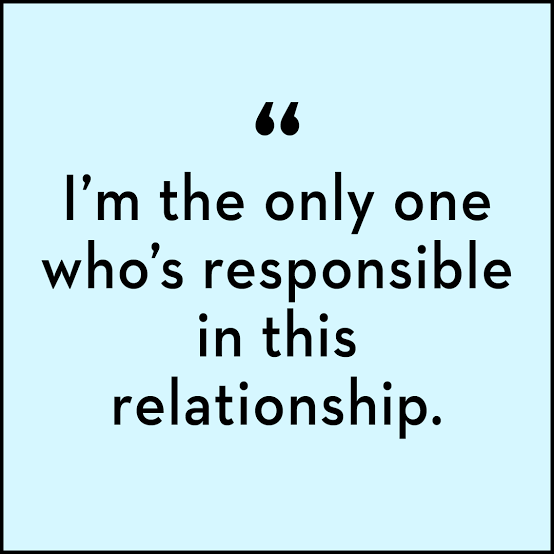
In today’s world of awareness and advocacy, the term gaslighting has gained massive traction—and for good reason. It’s one of the most subtle yet damaging forms of emotional abuse, and it’s more common than many people realize.
You may have heard the word thrown around in discussions about toxic relationships or manipulative behavior, but do you really know what it means?
Gaslighting can creep into your life without warning, leaving you feeling anxious, confused, and uncertain of your own reality.
It can happen in romantic relationships, at work, within families, and even among friends. Yet many victims don’t realize they’re being gaslighted until the emotional damage is done.
In this in-depth guide, we’ll break down what gaslighting is, explore the psychological manipulation behind it, show you how to recognize the signs, and equip you with actionable steps to respond and heal.
What Is Gaslighting?
Gaslighting is a form of psychological manipulation in which one person seeks to sow seeds of doubt in another person’s mind. The ultimate goal is to make the victim question their perception of reality, their memories, and even their sanity. It’s a tactic used to gain emotional control and power over someone.
The term originates from the 1944 film Gaslight, in which a husband manipulates his wife into believing she’s going insane by dimming their gas-powered lights and then denying it ever happened. While the term was born from fiction, the behavior is very real and extremely harmful.
Gaslighting doesn’t happen in isolation. It’s a pattern of behavior—small, calculated actions designed to make you second-guess yourself until you’re dependent on the manipulator for “truth.”
The Psychology Behind Gaslighting
To understand gaslighting, we must look at the psychological dynamics behind it. At its core, gaslighting is about control. It’s often used by individuals who display narcissistic, sociopathic, or emotionally manipulative tendencies.
Here’s why gaslighters do what they do:
- Power: They feel empowered when they can control how someone thinks or feels.
- Insecurity: Many gaslighters mask deep insecurities by dominating others emotionally.
- Avoiding Accountability: By twisting facts or denying events, they avoid taking responsibility.
- Maintaining an Image: Gaslighters often want to uphold a façade—whether of perfection, authority, or victimhood—and they manipulate others to protect it.
Over time, gaslighting can lead the victim to become emotionally dependent on the gaslighter for validation, truth, and direction.
10 Deep Signs You’re Being Gaslighted
Gaslighting isn’t always easy to recognize, especially because it starts subtly and escalates over time. Here are ten deeply revealing signs that you may be experiencing gaslighting:
1. You Constantly Second-Guess Yourself
You used to trust your gut. Now, you’re questioning everything you think, feel, or remember. You may ask yourself things like:
- “Did I really say that?”
- “Maybe I misunderstood them.”
- “Am I just being paranoid?”
This ongoing self-doubt is a red flag.
2. You Apologize Excessively
You find yourself saying “I’m sorry” all the time—even when you’re not at fault. You apologize just to smooth things over, not because you did something wrong. Over-apologizing is a sign that you’ve internalized blame that isn’t yours.
3. You Feel Like You Can’t Do Anything Right
No matter how hard you try to meet expectations, it’s never enough. You’re criticized for things you didn’t do, or punished emotionally for simply expressing yourself.
This emotional imbalance makes you feel inadequate and powerless.
4. Your Emotions Are Dismissed or Ridiculed
If you express pain, hurt, or confusion, the response is often:
- “You’re being dramatic.”
- “You’re overreacting.”
- “You’re too sensitive.”
These phrases are designed to invalidate your feelings and silence your voice.
5. They Deny Clear Evidence
You could present undeniable facts—texts, receipts, or actual memories—and they still deny it happened. You’re told:
“That’s not how I remember it.”
“You’re making things up.”
“That’s not what I said.”
This blatant denial of reality can be extremely disorienting.
6. They Use What You Love Against You
Gaslighters will often weaponize your vulnerabilities. If you confide in them about insecurities or trauma, they might later use it to hurt or humiliate you during arguments.
It’s the ultimate betrayal of trust—and a powerful control tactic.
7. You Start Hiding Things From Friends or Family
You may feel embarrassed or ashamed about what’s happening in your relationship. You don’t want others to know, or you find yourself downplaying serious issues.
This isolation keeps you trapped.
8. You Feel Confused, Anxious, or “On Edge” Around Them
You walk on eggshells. You’re afraid of how they’ll react to small things—what you wear, who you talk to, or even how you phrase something.
This constant fear of emotional backlash is a major sign of manipulation.
9. They Flip the Script
Whenever you confront them about something hurtful, they turn it around on you. Suddenly, you’re the problem:
“I wouldn’t have said that if you didn’t push me.”
“You always twist things.”
“You’re making me look like the bad guy.”
Gaslighters avoid accountability by making you the villain.
10. You Feel Like a Shell of Your Former Self
Gaslighting takes a toll on your mental health. You may feel depressed, indecisive, unsure of your identity, or emotionally drained. The vibrant, confident person you once were now feels distant.
Real-Life Examples of Gaslighting
Let’s break this down with a few scenarios.
Romantic Relationship Example:
You: “You said you’d help me clean the house today.”
Partner: “No, I didn’t. You always hear what you want to hear. You’re imagining things again.”
Result: You question your memory, feel guilty for asking, and end up doing everything alone.
Workplace Example:
You: “I sent that report last week as requested.”
Boss: “I never asked for it. Are you sure you’re organized enough for this role?”
Result: You scramble to prove yourself, lose confidence, and fear job insecurity.
Family Example:
You: “It really hurt me when you made that comment about my weight.”
Parent: “Oh please, you’re so sensitive. I was joking.”
Result: You doubt your feelings and avoid bringing up issues in the future.
Why Do People Gaslight?
Not all gaslighters are textbook narcissists. Some may gaslight unconsciously, repeating patterns they’ve learned from their own environment. However, intentional gaslighting is often driven by:
- Desire for control
- Fear of vulnerability or exposure
- Power imbalance in relationships
- Need to dominate or belittle others to feel superior
Regardless of intent, the effects are real and damaging.
How to Respond to Gaslighting
If you suspect you’re being gaslighted, here’s how to take back control and protect your mental well-being:
1. Document Everything
Keep a journal, save messages, or take screenshots. This helps you validate your reality and build evidence in case you need to seek outside support.
2. Set Boundaries
You don’t owe anyone unlimited access to your emotions or mental space. Establish clear boundaries:
- “I will not continue this conversation if you raise your voice.”
- “I need you to respect my feelings even if you don’t agree.”
3. Don’t Argue Over “Reality”
Gaslighters thrive on confusion. Arguing about what did or didn’t happen plays into their game. Instead, stand firm in your truth:
“We remember things differently, but this is how I experienced it.”
4. Lean on Trusted People
Talk to friends, family, or a therapist who can help you rebuild your perspective and remind you that your experiences are valid.
5. Seek Professional Help
A licensed therapist can guide you through the emotional fallout of gaslighting. Therapy is also a safe place to rebuild self-esteem, work through trauma, and develop strategies for empowerment.
How to Heal After Gaslighting
Recovery from gaslighting is not instant—it’s a journey of reclaiming your voice, power, and sense of self. Here’s how to begin:
1. Reconnect with Yourself
Start journaling, meditating, or engaging in hobbies that bring joy. These activities help you rediscover your identity outside the manipulative dynamic.
2. Affirm Your Reality
Practice daily affirmations such as:
- “My thoughts and feelings are valid.”
- “I am not defined by someone else’s narrative.”
- “I trust my perception.”
3. Forgive Yourself
You’re not “stupid” for being gaslighted. You’re human. Emotional manipulation can happen to anyone. Extend compassion to yourself—you survived, and that’s powerful.
4. Avoid Future Gaslighters
Pay attention to red flags in future relationships. If someone constantly invalidates your feelings, manipulates situations, or avoids accountability, consider stepping back.
5. Rebuild Confidence
Take small steps to make independent decisions again. With time, your self-trust will grow stronger than ever before.
Final Thoughts
Gaslighting is more than just a toxic behavior—it’s an emotional weapon. But knowledge is your first shield. By understanding what gaslighting is and recognizing the signs, you’re already on your way to breaking free from manipulation and reclaiming your reality.
Remember this: You are not too sensitive. You are not overreacting. Your experience is real, and your voice matters.
Whether you’re in a relationship, dealing with a difficult boss, or navigating a complicated family dynamic—if something feels wrong, it probably is. Trust yourself. You have the power to rise, to heal, and to create a life where you are respected, valued, and free.




